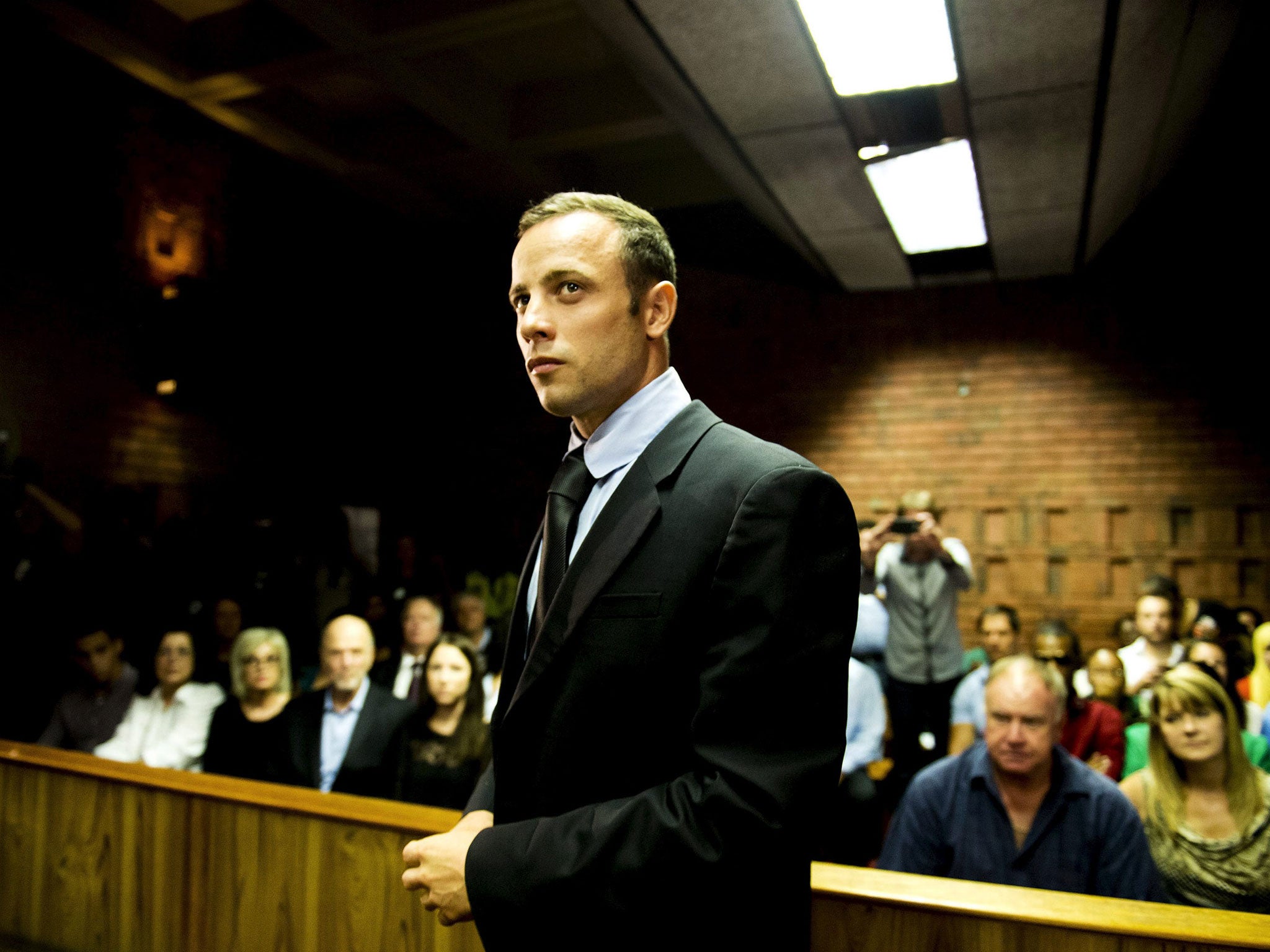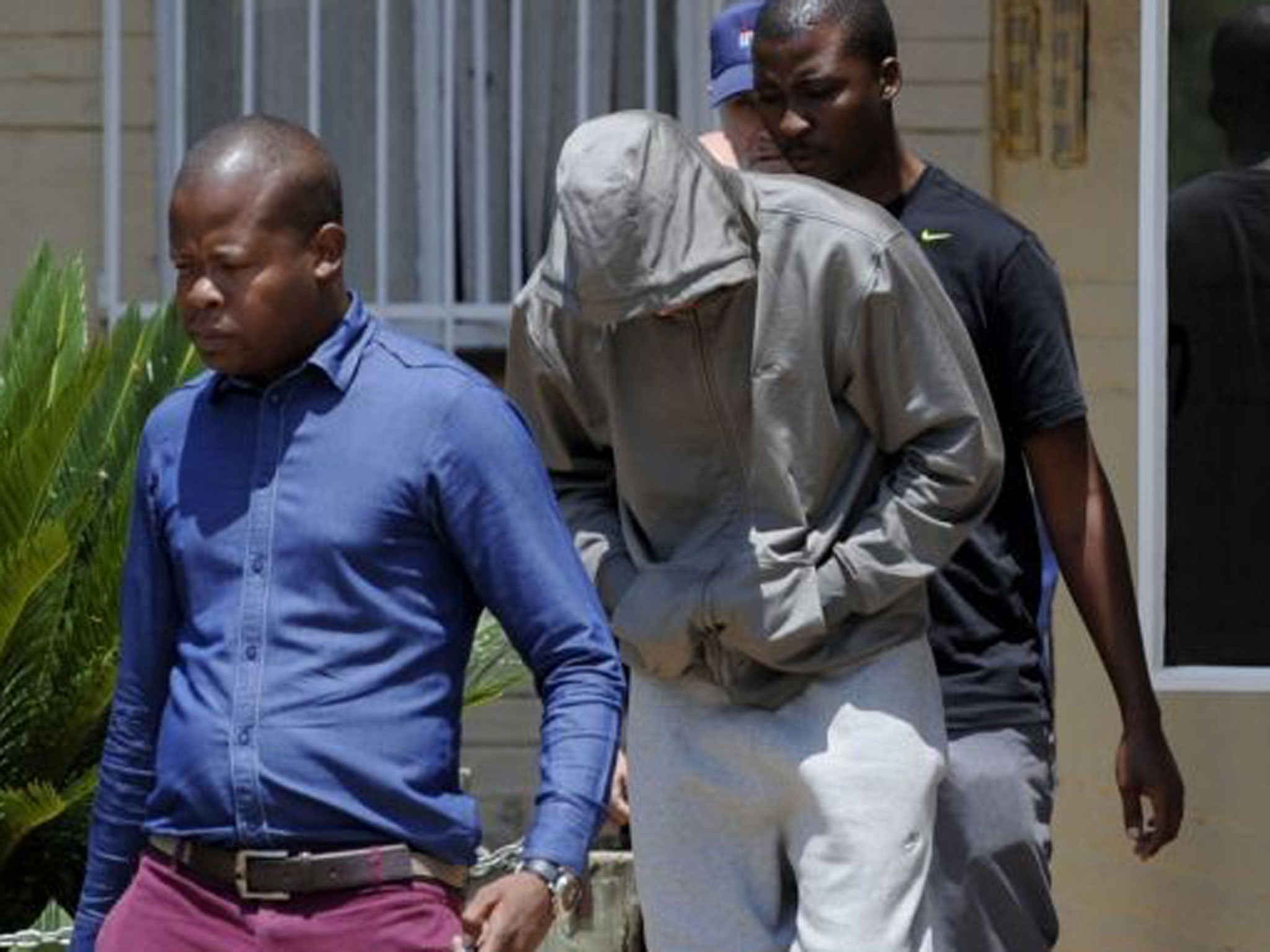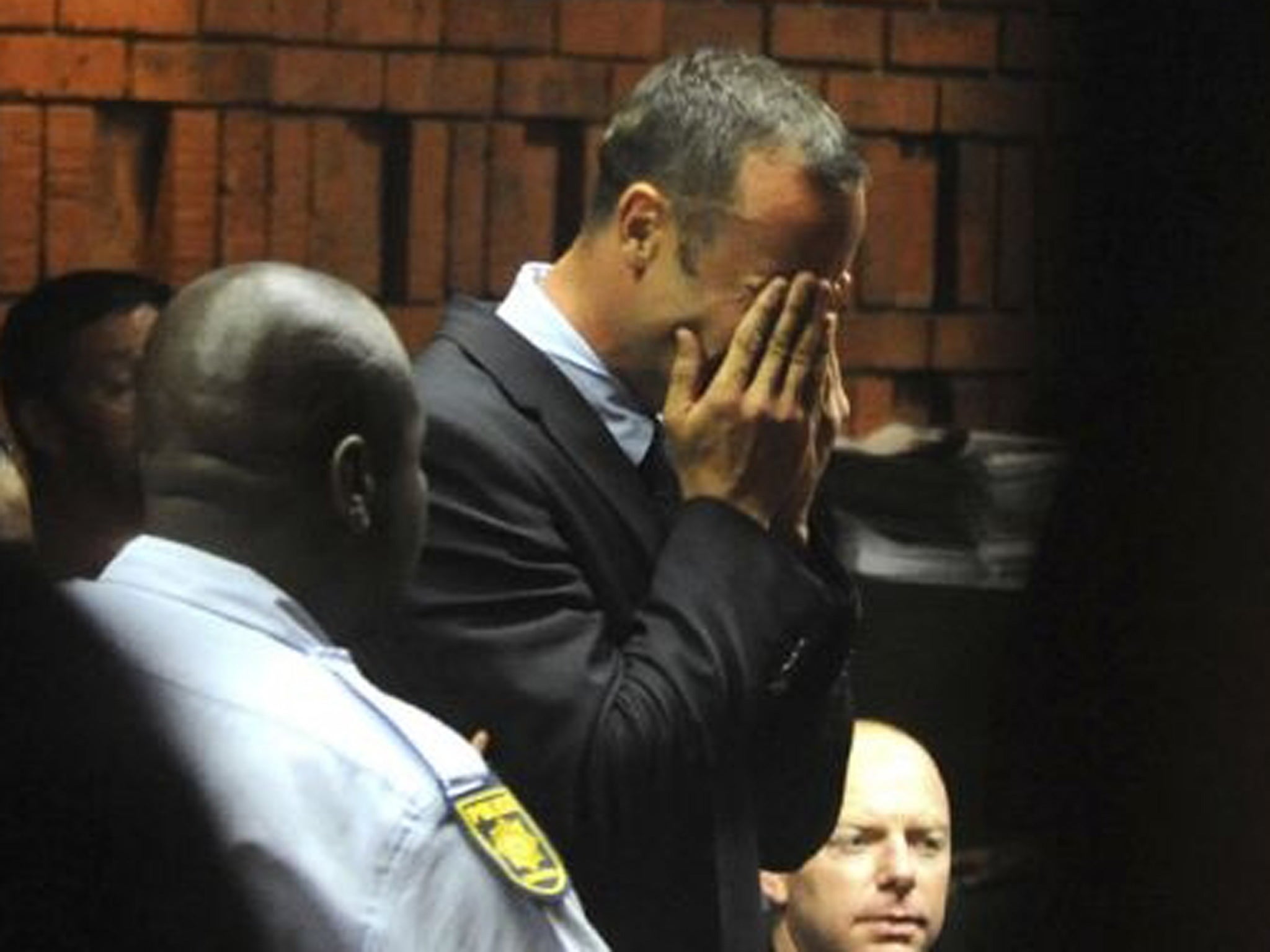Oscar Pistorius trial: Why has he been on bail for the last year?
As a South African legal expert explains, the bail decisions in the case have been in keeping with the country's laws, a legacy of the apartheid era

Your support helps us to tell the story
From reproductive rights to climate change to Big Tech, The Independent is on the ground when the story is developing. Whether it's investigating the financials of Elon Musk's pro-Trump PAC or producing our latest documentary, 'The A Word', which shines a light on the American women fighting for reproductive rights, we know how important it is to parse out the facts from the messaging.
At such a critical moment in US history, we need reporters on the ground. Your donation allows us to keep sending journalists to speak to both sides of the story.
The Independent is trusted by Americans across the entire political spectrum. And unlike many other quality news outlets, we choose not to lock Americans out of our reporting and analysis with paywalls. We believe quality journalism should be available to everyone, paid for by those who can afford it.
Your support makes all the difference.When Oscar Pistorius was granted bail in February 2013 shock was expressed from many quarters, resulting in allegations in the media that Pistorius received special treatment due to his celebrity status. This sense of public consternation seemed to heighten further when Pistorius successfully challenged his onerous bail conditions, resulting in the return of his passport to his lawyers and limited permission to travel. Notably though, such consternation was not expressed by the South African legal community. And there is good reason for this – the outcome of Pistorius’ bail hearings is utterly in keeping with the South African law regulating bail. In fact, the frequent expressions of outrage from the public at bail decisions are rooted in a fundamental misunderstanding of the purpose and function of bail.
During apartheid, detention without trial was ruthlessly exploited by the oppressive state to suppress political dissent. The law was a weapon in the apartheid government’s arsenal, used to maintain minority domination and entrench its racist ideology. The value of the presumption of innocence and individual liberty therefore cannot be over-stated in South Africa. Nowhere is this more true than in the case of bail laws, even if at times this upsets a public that seems to forget the risks associated with unnecessary detention before trial and the high cost of it to society at large.
The right to bail in South Africa can be traced to section 35(1)(f) of The Constitution of The Republic of South Africa, 1996, which states: "Everyone who is arrested for allegedly committing an offence has the right: … (f) to be released from detention if the interests of justice permit, subject to reasonable conditions". This provision is further strengthened by the presumption of innocence and the right to freedom and security of the person, which includes a prohibition against detention without trial. The liberty of the accused is balanced with the interest of society in the administration of justice in chapter 9 of Criminal Procedure Act 51 of 1977, section 60 of which governs the granting of bail.

Section 60 begins by laying out the general principle that an accused is entitled to be released on bail if the ‘interests of justice’ so permit. It then proceeds to set out a number of grounds on which the interests of justice would not permit release. These include where there is a likelihood (a probability, not mere possibility) that the accused will: endanger the safety of the public or specific person; attempt to evade trial; tamper with evidence or intimidate witnesses; jeopardise the proper function of the criminal justice system and; cause public disorder. The court weighs all of these factors in the balance when deciding whether or not to grant bail.
However, in Pistorius’ case, and in the case of all schedule 6 offences, of which premeditated murder is one, more stringent bail rules apply. Section 60(11)(a) requires the accused to convince the court that ‘exceptional circumstances exist which in the interests of justice permit his/ her release’ before bail will be granted. Pistorius was granted bail as he clearly met this provision.

In his unusually lengthy bail decision, magistrate Nair pointed out that the prosecution had not established any of the usual grounds for denying bail. Specifically, Pistorius was not a flight risk – he has strong family ties in South Africa, he is incredibly easily identifiable globally, his prostheses require regular and consistent medical attention and the vast majority of his assets rest within South Africa. It was also held that he does not pose a danger of violence to the community – though the prosecution had alleged a track record of violence the magistrate criticised them for not providing any evidence of this beyond vague and flimsy allegations. Furthermore, the magistrate did not find that the state’s case against Pistorius was so strong that it might induce him to abscond – he had cooperated with the authorities since the killing and there was no reason to believe he would not appear for the trial.
However, this alone was not enough to grant bail. Pistorius had to demonstrate exceptional circumstances. He did this with the lengthy affidavit he presented in the bail hearing detailing his version of what happened on that fateful night. Magistrate Nair commented that accuseds’ bail affidavits are usually brief and perfunctory but Pistorius had reached out through his to establish exceptional circumstances. Thus, not only were all the regular grounds for granting bail met, Pistorius had also discharged his duty to provide the court with the exceptional circumstances required.

Contrary to popular belief, bail is not primarily about the guilt or innocence of the accused (that is what a trial is for) but rather it is about ensuring and securing the accused’s attendance at the subsequent trial. Naturally, the seriousness of the offence and whether the accused poses a danger to society are relevant factors for the courts to consider. Nonetheless, it was not established in Pistorius’ case that he posed a danger to any individual or society at large. He has no prior convictions and despite the State trying to paint a picture of him as a violent person they did not succeed in doing so. In fact, magistrate Nair heavily criticised the State for making allegations without providing evidence to back them up.
Pistorius has never denied killing Reeva Steenkamp but this does not necessarily mean that he murdered her. The enterprise of criminal law is all about fair labeling: attaching the appropriate label to conduct so that the correct and equitable sentence can follow. In South Africa murder is the intentional killing of another human being whereas culpable homicide, the lesser offence, is the negligent killing of a human being. In circumstances where a recognised defence exists, the killing of a human being may not be an offence at all. None of us were in that house on Valentine's Day 2013, therefore until proper evidence is presented in a court of law and the truth is allowed to come out we cannot know what the circumstances of the killing were. Before conviction a court must err on the side of the liberty of an individual before it has been proven they have committed an offence. This is in the interests of all innocent members of society, as errors do occur in the criminal justice system where innocent people are accused of crimes and our recent history shows us the ease with which an unscrupulous government can manipulate the criminal justice system.
Pistorius was not granted bail because he is famous or wealthy, he was granted bail because the law correctly permits it. He is not a flight risk, has co-operated with the police and poses no danger to society. The limited return of Pistorius’ passport was not for him to gallivant around the world on holiday, it was to permit him the opportunity to compete and work abroad should he wish to in order to continue to earn an income before what is bound to be an incredibly expensive trial. Any outrage at the return of his passport has proven to be a storm in a teacup, as he has not elected to use it anyway. Like anyone else, Pistorius deserves the right to have the truth come out at trial rather than using bail proceedings as preemptive punishment. Most importantly, letting the truth come out at trial, rather than succumbing to wild speculation and intuition, is the best way to honour the memory of Reeva Steenkamp and ensure that justice takes its course. Thankfully, as Pistorius has not absconded or committed any other offences, the bail laws have worked in this case and on 3 March 2014 the journey towards justice will commence.
Dr Kelly Phelps is a senior lecturer in law at the University of Cape Town
Join our commenting forum
Join thought-provoking conversations, follow other Independent readers and see their replies
Comments